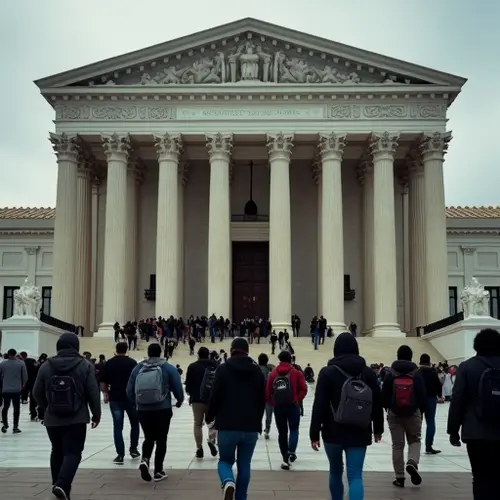
Landmark Ruling on Immigration Policy
The US Supreme Court has ruled that the Trump administration may resume deporting migrants to countries other than their nations of origin without allowing them to demonstrate potential danger in those third countries. This decision overturns a lower court ruling that required authorities to provide migrants a "meaningful opportunity" to challenge their removal.
Ideological Split on the Bench
The 6-3 decision followed strict ideological lines, with the conservative majority prevailing. The court provided no written explanation for overturning the federal judge's ruling. Progressive justices issued a scathing dissent, with Justice Sonia Sotomayor condemning the decision as a "gross abuse of discretion" that enables deportations "without warning or opportunity to be heard." Justices Elena Kagan and Ketanji Brown Jackson joined the dissent.
The South Sudan Deportation Case
The ruling came after immigration authorities attempted to deport eight individuals convicted of serious crimes in the US to South Sudan. Their flight was redirected to a US naval base in Djibouti following the lower court's intervention. The migrants - originating from Myanmar, Vietnam, and Cuba - couldn't be immediately returned to their home countries according to officials.
Legal and Humanitarian Implications
Attorneys representing the migrants vowed to continue their legal battle, with one organization director warning of "chilling consequences" from the ruling. Meanwhile, the Department of Homeland Security hailed the decision as a "major victory for American people's safety" on social media. This policy revives a controversial Trump-era immigration approach allowing expedited removals without standard asylum screenings.
Historical Context of Third-Country Deportations
The "third-country" deportation policy emerged during the Trump administration as part of broader efforts to restrict immigration. Proponents argue it prevents asylum system abuse, while critics contend it violates international refugee protections. The Supreme Court's conservative majority has consistently supported immigration restrictions, with this ruling further empowering executive authority in deportation proceedings.

 Nederlands
Nederlands
 English
English
 French
French
 Deutsch
Deutsch
 Espaniol
Espaniol
 Portugese
Portugese



